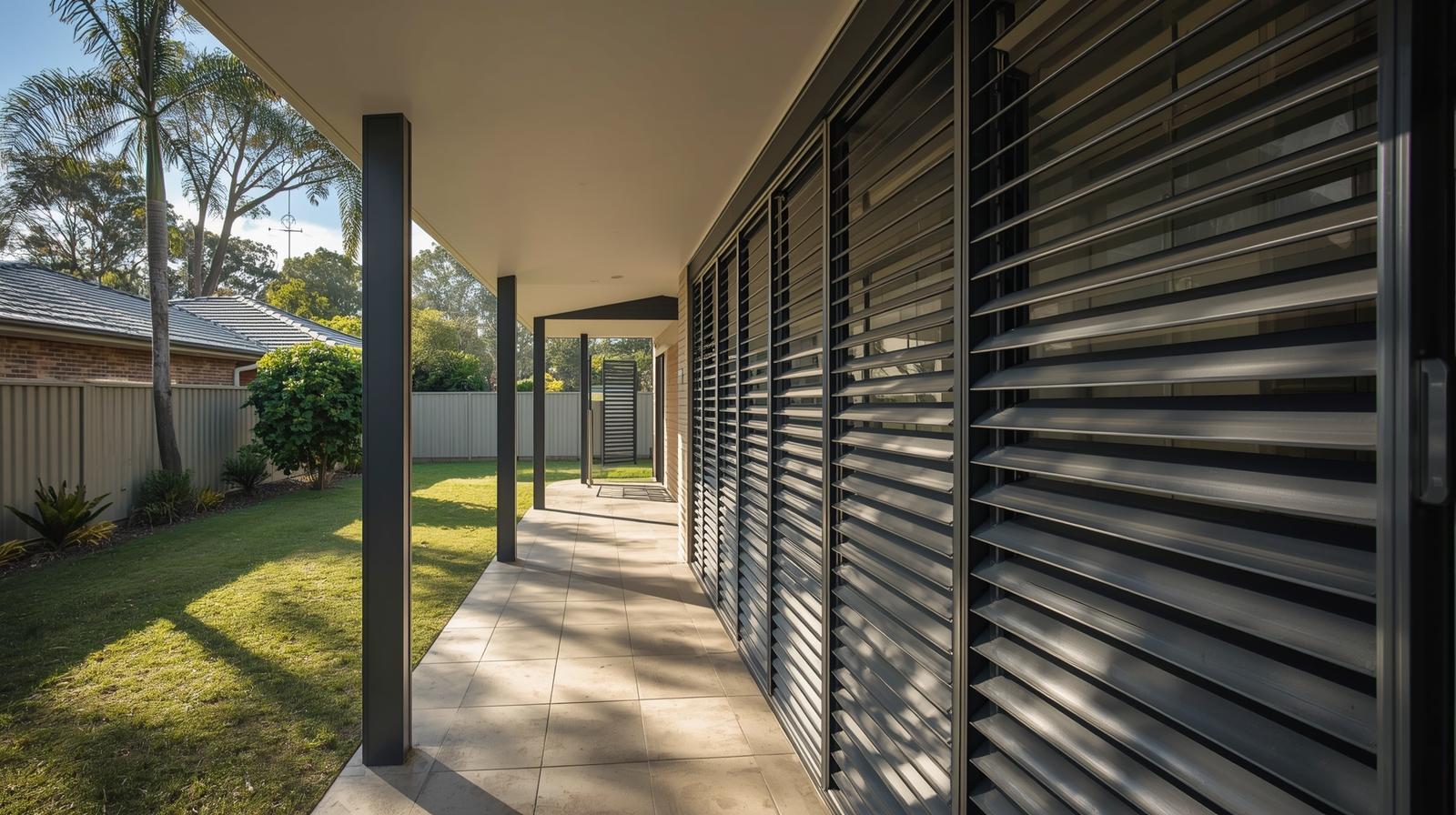
31 Aug Outdoor Shutters for Queensland Homes: Shade, Privacy and Weather Protection
Outdoor shutters give Queensland homes reliable shade, privacy, and airflow while standing up to heat, UV, rain, and coastal air. This guide explains materials, configurations, and installation so you can choose outdoor shutters that suit your space and climate.
Why Outdoor Shutters Are a Smart Choice in Queensland
Outdoor shutters extend the way you live at home. On hot summer afternoons they temper harsh sun without shutting out the breeze; in shoulder seasons they turn a deck or balcony into a comfortable, semi-enclosed space; and year-round they add privacy from neighbouring properties.
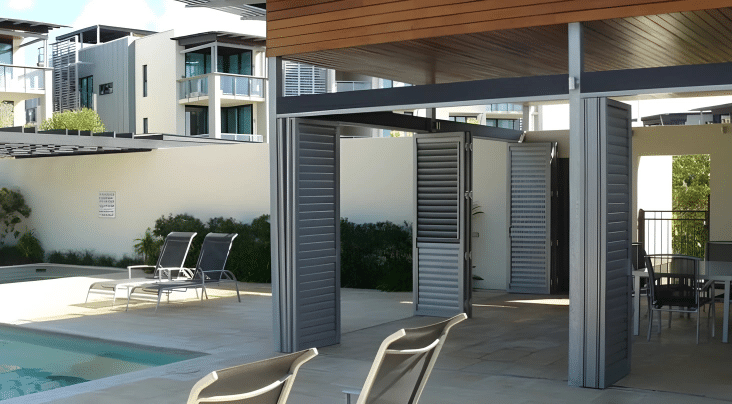
The right outdoor solution also copes with UV, humidity, and coastal conditions, which is essential across Brisbane and Ipswich.
Outdoor Shutters vs External Blinds vs Roller Shutters
Outdoor shutters use rigid aluminium louvres you can tilt to balance shade, airflow, and privacy. External blinds rely on fabric to filter or block light, which is ideal for wide spans and softer finishes but offers less structural control in windy conditions. Roller shutters sit in guides and roll up into a headbox, giving near-total blockout and strong weather protection but less flexible light and view control. If you want architectural lines, precise privacy and airflow, and robust weather performance in alfresco areas, outdoor shutters are a natural fit.
Materials and Finishes That Stand Up to Weather
Aluminium is the benchmark material for outdoor shutters because it delivers structural stability with minimal maintenance. Quality systems use powder-coated finishes for colourfastness and corrosion resistance, and stainless-steel fixings to prevent rust streaking. Blade profiles typically fall in a range that balances view and shade control, while frames and posts are sized for your opening width and wind exposure.
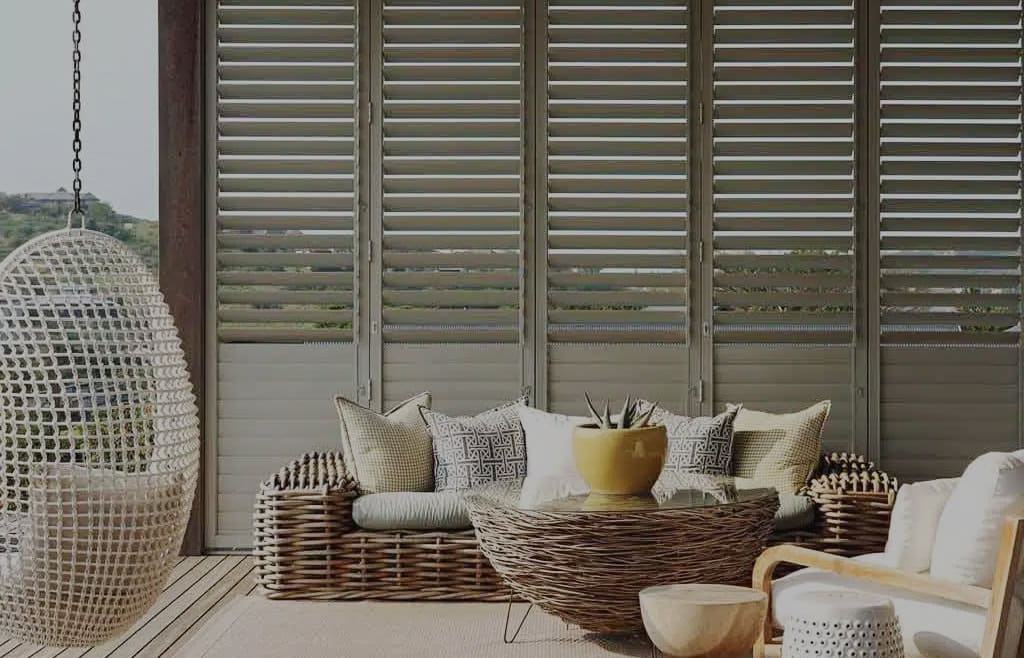
If you want an overview of how these elements come together for local conditions, explore ShutterUp’s range of external aluminium shutters.
Configuration Choices for Your Space
Outdoor shutters can be fixed in place when you simply need privacy or wind screening, but many homes benefit from operable designs. Hinged panels work well where you want walk-through access or to service windows. Sliding panels suit long runs on patios and balconies where stacking space exists. Bi‑fold panels open wide for maximum openness, then close to give you a protective skin when the weather turns. The right choice often depends on traffic flow, opening width, and how you plan to use the space day to day.
Shade, Privacy, Airflow and Comfort
Well-specified outdoor shutters take the edge off western sun without plunging your area into darkness. By tilting louvres upward, you can retain gentle daylight while blocking lines of sight from neighbouring properties. On warm days, angled blades encourage cross-breezes, cutting reliance on fans. When the weather is unsettled, partially closed shutters reduce wind and light rain on decks and balconies so you can keep using the space more often.
Built for Queensland Heat, UV and Coastal Air
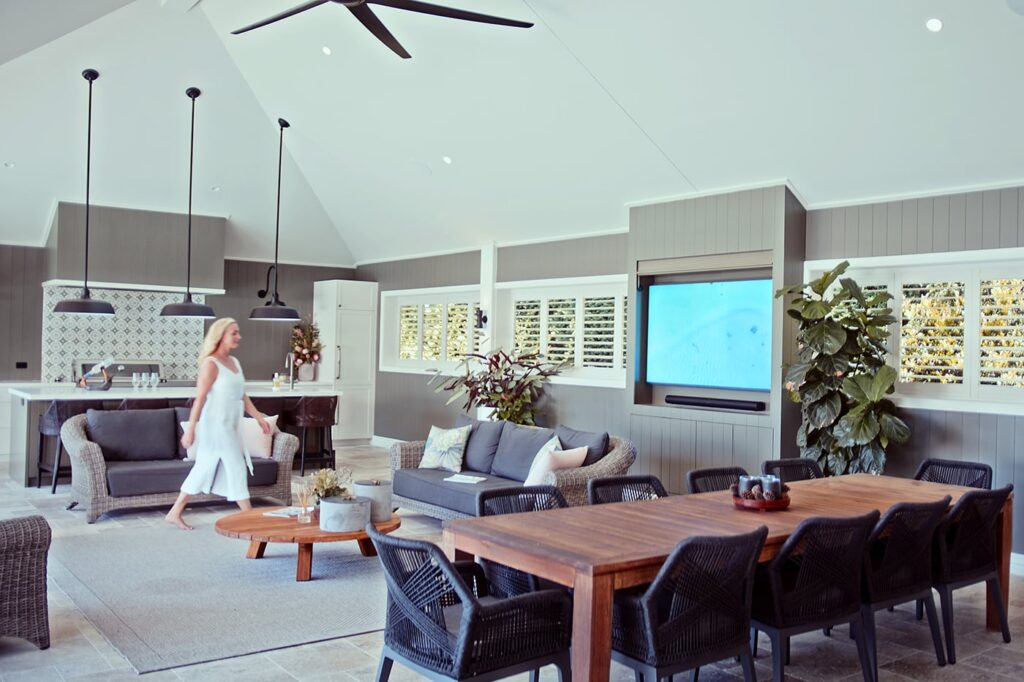
Queensland’s climate is unforgiving on outdoor finishes. Powder-coated aluminium resists UV degradation and the chalking that occurs with lesser finishes, while stainless fasteners reduce corrosion around fix points. In coastal suburbs, correct specification and aftercare are important; a simple freshwater rinse after salt-laden weather helps preserve the finish. With the right product and care, your shutters keep their clean lines and smooth operation for years.
Care and Maintenance for Longevity
A quick dust or soft brush removes everyday debris. After storms or beach days, a light freshwater rinse helps prevent salt buildup on coastal homes. Avoid harsh abrasives and strong solvents. Periodic checks of louvre tension and panel hardware keep everything operating smoothly, and touch-ups to small marks on powder coat help maintain appearance.
Choosing Outdoor Shutters for Patios, Decks and Balconies
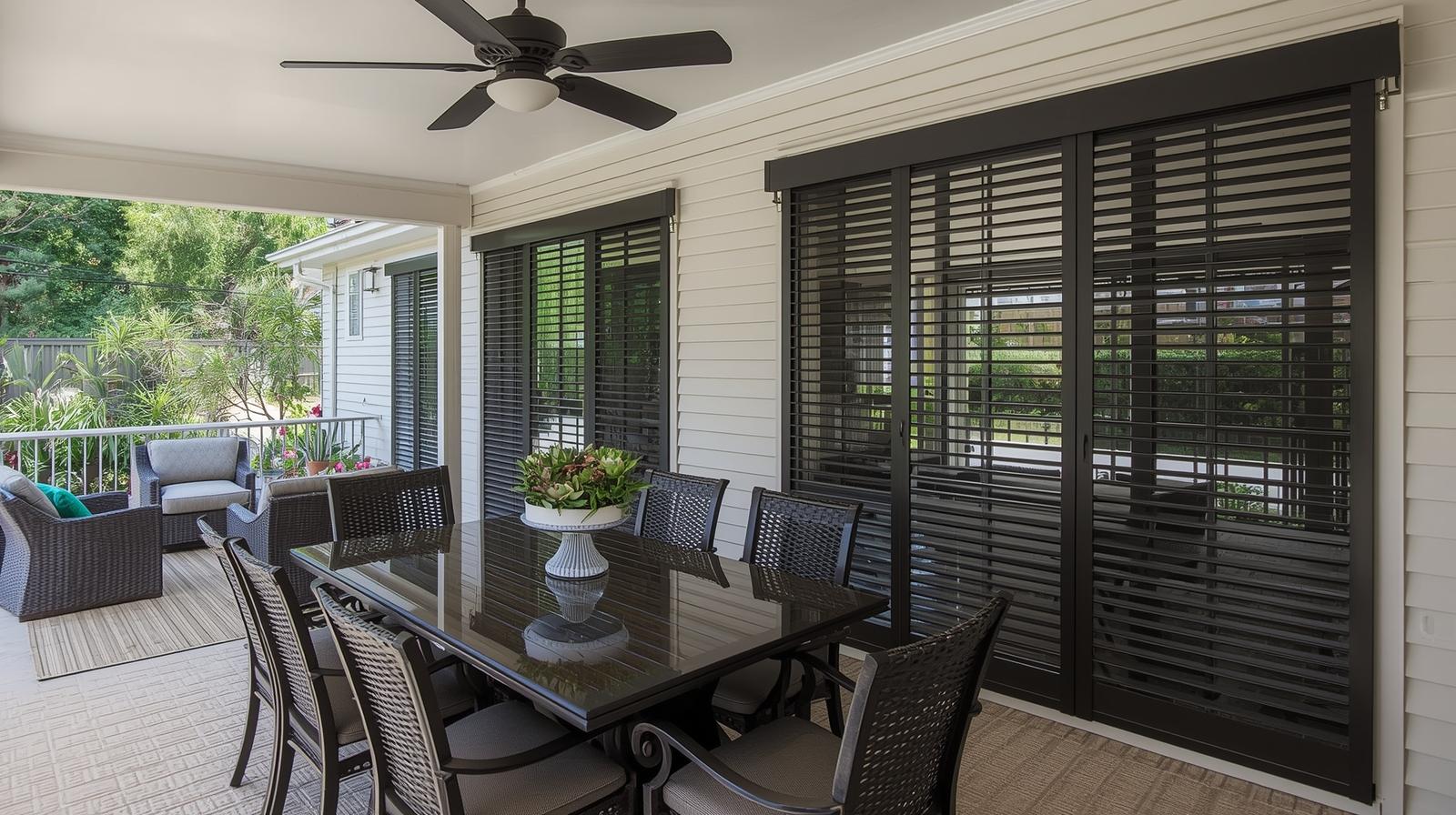
Decks that face afternoon sun generally benefit from wider louvres angled to block glare while keeping the air moving. Balconies overlooking neighbours call for privacy-first settings with blades tilted up so you maintain light without inviting lines of sight. Patios used for dining often pair sliding panels along the edge with a hinged access panel near entries. If you already have security screens on doors or windows, outdoor shutters complement them by adding zone-based weather and privacy control to the edges of your living areas.
Bring Your Outdoor Area to Life With Custom Outdoor Shutters
Outdoor shutters deliver a clean architectural look, useful shade and privacy, and more liveable alfresco spaces across the seasons. If you want advice tailored to your home, see what’s possible with ShutterUp’s external aluminium shutters and then book a free in‑home measure & quote to get exact specifications, finishes and timelines for your Brisbane or Ipswich address.
Frequently Asked Questions
What are the best outdoor shutters for Queensland weather?
Powder-coated aluminium outdoor shutters are the most durable choice for heat, UV and coastal air, with stainless fixings to resist corrosion.
Do outdoor shutters provide privacy without blocking breezes?
Yes. Tilting louvres upward maintains airflow and daylight while blocking sightlines from neighbours, especially on decks and balconies.
Are sliding or bi‑fold outdoor shutters better for patios?
Sliding panels suit long runs and stack neatly, while bi‑folds open wider for maximum openness. The best choice depends on span and traffic flow.
How much do outdoor shutters cost in Brisbane?
Pricing varies by size, configuration and finish. Fixed or hinged are usually simpler; sliding and bi‑fold systems add hardware and labour. A free in‑home quote provides exact figures.
How do I maintain outdoor shutters near the coast?
Rinse gently with fresh water after salt-laden weather, avoid harsh abrasives, and check hardware periodically to keep operation smooth.

